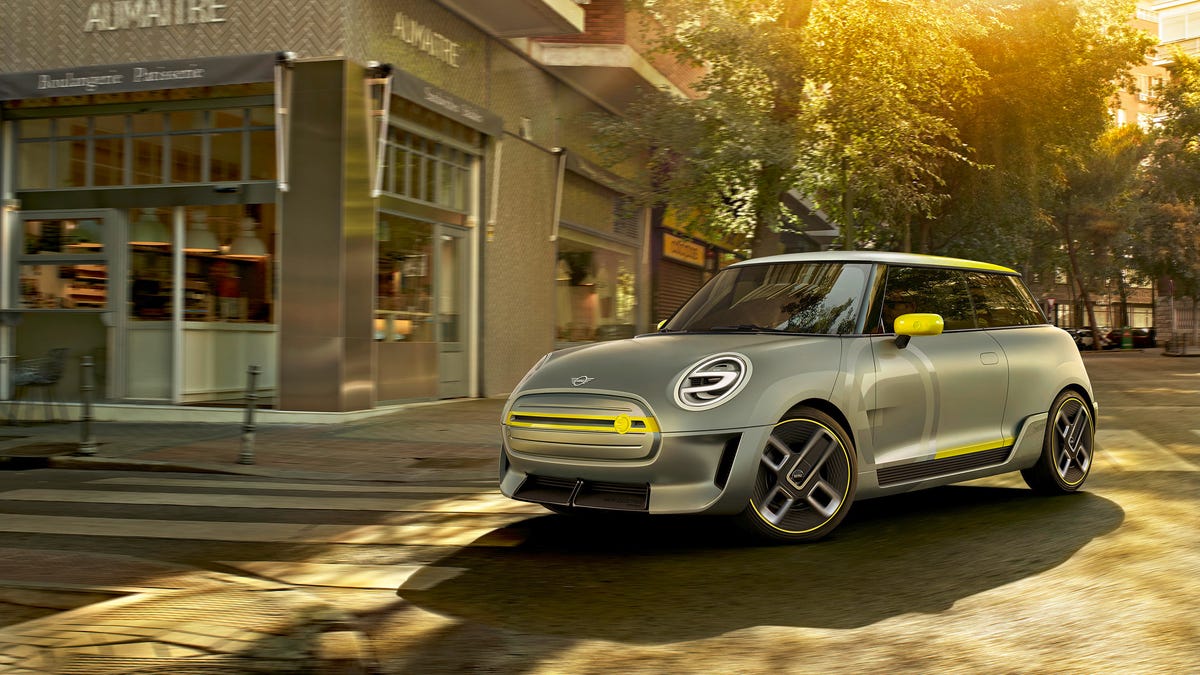BMW developing different battery cells for sexier designs
Designing different batteries for hybrid and electric SUVs than for sedans and coupes could yield better-looking, more spacious models.

One of the most tantalizing benefits of electric power for tomorrow's cars and trucks goes well beyond such powertrains' instant torque and greener footprint: It's the amount of freedom the technology gives car designers. Without needing to package a boxy engine, transmission and fuel system, EVs have had car designers salivating over the promise of truly clean-sheet models for some time now.
But even then, there are spatial limitations, and BMW is reportedly working to solve them. According to Automotive News, BMW is engineering differently sized battery cells for different applications to enable sexier and more space-efficient body designs.
For example, BMW's research and development boss, Klaus Froehlich, told the industry publication that the company is developing shorter cells for plug-in hybrid and battery-electric sedans and coupes than it is for SUVs . The more upright proportions of SUVs will allow for commensurately taller cells without impacting design or cabin and cargo space. BMW spokesman Tom Plucinsky tells Roadshow that the SUV cells are "probably 40 percent taller" than their low-profile sedan counterparts.
Unlike some other automakers, BMW assembles its own battery packs, though it works with a supplier to provide cells.
BMW's forthcoming new vehicle architectures will be able to accommodate everything from conventional internal combustion power (gas or diesel) to hybrid, plug-in hybrid (PHEV) and full battery electric (BEV).
Plucinsky says BMW is "moving away from single-purpose platforms for electric cars ," noting that this modular approach will allow the company's plants to scale production up or down to meet demand for individual types of powertrains. If PHEV sales are trending and BEV sales slacken, BMW will be able to shift production on the fly to meet demand.
It's already quite common for automakers to offer variously sized battery packs to achieve different driving ranges and price points, a modern practice pioneered with the Tesla Model S. And automakers like BMW have previously revealed that they are developing specific battery chemistries to yield different performance parameters to accommodate various vehicle needs. But the idea of developing differently sized cells for specific types of automobiles has largely been dismissed before over cost concerns. With the rising popularity of EVs and the lowering of R&D costs, however, BMW's strategy sounds increasingly viable.
Today, BMW's pure-electric vehicle footprint is limited to its i3 city car, but it's developing a range of new platforms, batteries and electric motors for a full line of EVs, and officials have confirmed the company is aiming for 15 percent to 25 percent of its global fleet to be electrified by 2025.
Near-term EV models that are expected include a Mini E model due in 2019 (presaged by the recent Mini Electric Concept shown above), as well as a battery-powered X3 crossover SUV in 2020.

